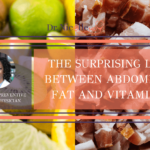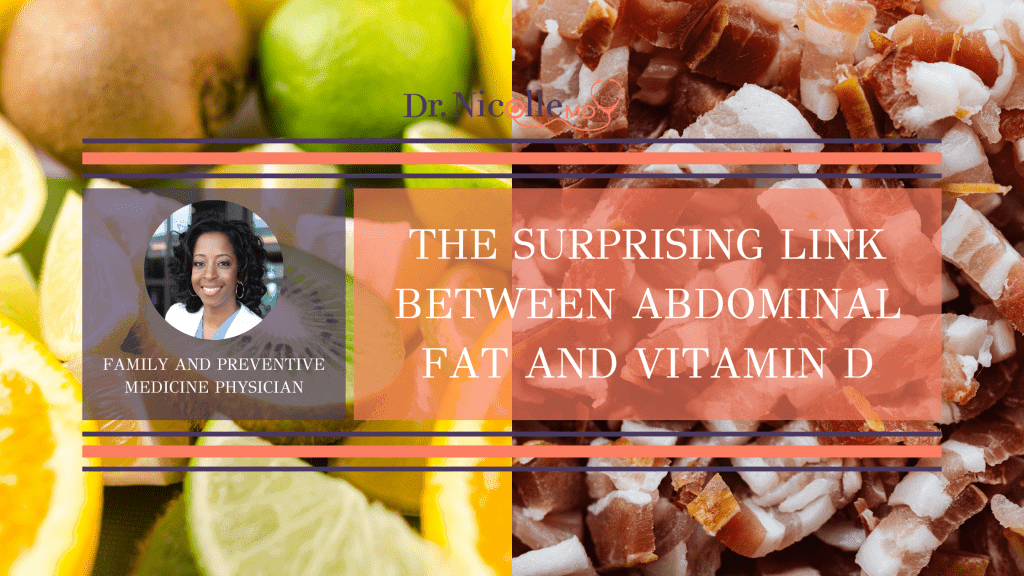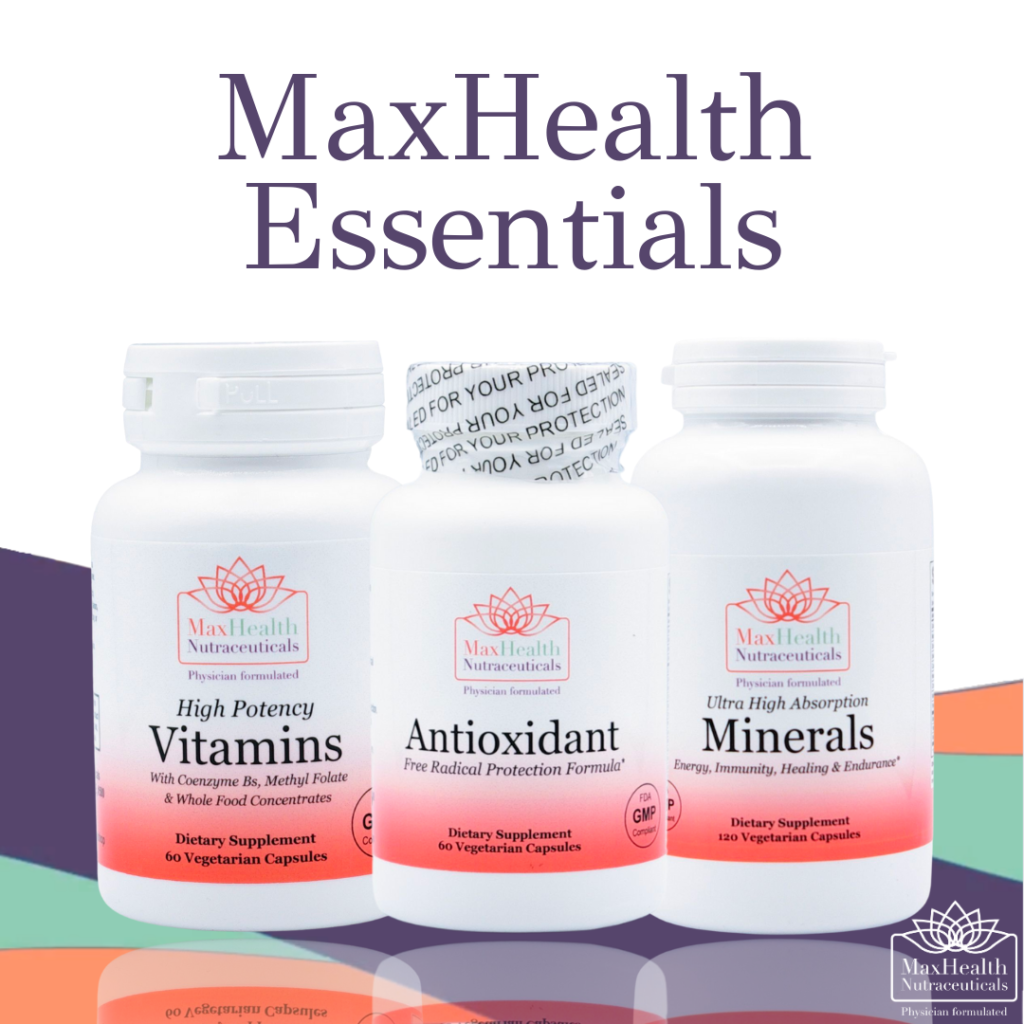

It’s Wellness Wednesdays! We’ll talk about the surprising link between abdominal fat and vitamin D. Junk food and a lack of exercise may be the most obvious reasons for having a large waist, but a new study suggests one more factor that might surprise you. Researchers have discovered a strong connection between low levels of vitamin D and excess abdominal fat.
People often believe that lifestyle choices are the only factor that affects their weight, but that’s not the case. There are many factors that can play a role in weight gain or loss, including genetics, age, and medical conditions. According to the results of a new study, vitamin D levels may play a major role in abdominal fat levels.
One of the most common health problems in the United States today is obesity, and a large percentage of adults within a generation have a body mass index (BMI) of 30 or higher. They have a number of medical conditions that come with being overweight, such as diabetes, osteoarthritis, high blood pressure, and coronary artery disease. In addition, obesity is associated with a number of health risks, such as increased risk of early death, heart disease, and cancer.
But what causes people to gain so much weight? One problem is lack of exercise. Another is overeating, but a new study from researchers from the University of Southampton in the UK has found a third factor that can be a trigger of obesity: low levels of vitamin D.

Obese men and women with higher levels of abdominal fat were found to be at higher risk for vitamin D deficiency, according to an analysis by two medical schools in the Netherlands. While the causal relationship is still unclear, some experts now suggest that anyone with a large waistline may need to have their vitamin D levels checked.
Even if you’re not obese, you may be struggling to trim your midsection and wondering if you’re consuming enough vitamin D. Take a look at this quick guide to help you protect your health.
Getting More Vitamin D
Vitamin D deficiencies are widespread, affecting more than 40% of Americans according to some estimates. The consequences can include brittle bones, a weakened immune system, and certain heart conditions.
Follow these tips to increase your vitamin D levels:
1. Eat fish and eggs.
Very few foods contain vitamin D naturally, but many are fortified with this important nutrient. Fatty fish and eggs yolks are especially beneficial because they contain a form of vitamin D that your body can use very effectively.
2. Catch some sun.
Vitamin D is a hormone as well as a vitamin, so your skin can make its own supply when it’s exposed to the sun. At the same time, some precautions are necessary. Depending on your sensitivity, 5 to 30 minutes of direct sun at least a few days a week may be adequate.
3. Consider supplements.
The quality and potency of supplements vary greatly among different brands so look for verification from the United States Pharmacopeia on the label to ensure it meets the highest standards.
4. Understand your risks.
Some adults need more vitamin D than others. That includes vegans, senior citizens, and people with darker skin.

Reducing Abdominal Fat
Fat that gathers deep in your abdomen surrounding your organs is called visceral fat. It’s especially risky because it disrupts your hormones and increases your risk for diabetes and heart disease. The good news is that it’s relatively easy to lose with diet and exercise.
Try these techniques to reduce abdominal fat:
1. Measure your waist.
Your doctor can perform a simple blood test to give you the most accurate reading of your vitamin D levels. However, just measuring your waist can often tell you if you’re at risk. In general, you may want to speak with your doctor if you’re a man with a waistline over 40 inches or a woman with a waistline over 35 inches.
2. Exercise regularly.
An active lifestyle along with aerobic exercise and strength training will help to blast away fat. To lose weight, work out for at least 3 hours each week.
3. Eat more fiber.
Foods that are high in fiber will help you to shed fat and satisfy your hunger with fewer calories. Fill up on vegetables, fruits, and whole grains.
4. Sleep well.
A lack of sleep can interfere with your metabolism and cause your body to retain more fat. Aim to get at least 7 hours of sleep each night.
In conclusion, there are many factors that cause obesity, but low levels of Vitamin D is an important factor that has so far been overlooked. If you are overweight, consider having your level of vitamin D checked. People with low Vitamin D are more likely to have high blood pressure, high cholesterol, depression, and mood disorders. It is also possible that the opposite is true, that low levels of Vitamin D are a result of being overweight. You should also consider taking Vitamin D supplements.
Turn your spare tire into a six pack. Meeting your vitamin D requirements and maintaining a flat stomach will help you to enjoy a longer and healthier life. Stay active, eat well, and talk with your doctor about your individual concerns.
I would love to give you a free resource sheet to support your overall wellness. Click the button below to receive your gift.
I really wanted to talk about this topic today because your natural health and wellness is important. You can adopt healthy lifestyle practices that improve your health, your environment, and enrich your life, which can in turn improve the lives of those close to you. You have the power to break the cycle of poor health, including chronic disease, so that you can leave a legacy of health to your loved ones.
I use functional medicine and lifestyle medicine as the first line of treatment, before medications, to treat lifestyle-related chronic diseases. Lifestyle-related chronic diseases include diabetes, hypertension, obesity, and some cancers, just to name a few. Lifestyle practices, such as eating a whole-food plant-based diet and regular physical activity, can help you lose weight, reverse some chronic diseases (if you suffer from them), and can even help you with detoxification. In certain cases, these approaches may even outperform pharmaceutical therapy.
But I always tell my patients that conventional medications may be appropriate at this time to prevent catastrophic illness, but over time, you can work to make the necessary lifestyle changes to possibly reduce and/or eliminate medications. Please remember to always consult your physician for your particular needs and circumstances prior to making any decisions whatsoever.
Is Dietary Supplementation Right For You?
For some people, vitamin and mineral supplements offer important health benefits. Supplements are designed to fight deficiencies found in our diet and complement the food we eat regularly. Supplements are basically “helping hands” to our daily food.
If you suspect that you aren’t getting the nutrients you need, consider shifting your focus from supplements to eating better.
But it is very important to note that we are not eating the same foods we ate years ago because the soils have been depleted of critical nutrients through current industrial farming practices. And because the soil is not as good as it used to be, the food supply (grown from the depleted soil) is not as good as it used to be. For example, you are not getting the same levels of magnesium as you would have gotten 30 or even 50 years ago.
Second, much of the food has been genetically altered, which can impact the inherent and unique nutritional composition that each food possess. For example, ancient einkorn wheat has less gluten, more protein, more Vitamin A, and more beta carotene, than modern genetically modified wheat.
Third, the toxic load in the environment today is much higher than 100 years ago. We can see this with global warming, toxic landfills, polluted oceans and waterways, etc. Toxicity levels interfere with nutrient assimilation and absorption not just into the foods, but into our bodies as well.
So… if you are unable to eat better, the supplements in my MaxHealth Essentials Bundle may provide the extra boost you need.
These are my favorite Wellness and Immune-Boosting Supplements to use! This MaxHealth Essentials Bundle will ensure you have the intake of the important vitamins, minerals, and antioxidants to decrease inflammation and boost your innate wellness day and night. Taken together, it’s a solid plan for increasing your body’s natural resiliency.
For best results make sure you use the supplements with dietary changes including a whole food plant-based diet, regular exercise (at least 2-3x per week), regular sleep (8 hours per night), and intermittent fasting (at least 1-3x per week).
Weight Monitoring
Since weight management is very important in combatting chronic diseases, I recommend that you be mindful of your weight and its fluctuations, and that you monitor your weight AT LEAST on a weekly basis. I recommend a scale that includes a body composition monitor (*this scale cannot be used with a pacemaker or other implanted devices).
Physical Activity
Physical activity (or exercise) can improve your health and reduce the risk of developing several chronic diseases like high blood pressure, type 2 diabetes, and cancer, just to name a few. Physical activity can improve your mood, boost your immune system, help you maintain a healthy weight, and is a great way to detox your body!
I often recommend yoga and resistance training for physical activity, but as you are aware, there are plenty of forms of “movement” that you can do! But for the basics, especially if you’re just getting started, yoga and resistance training are where I would start.
Yoga
Yoga can be a great way to improve your strength and flexibility, manage your stress, improve your heart health, and lose weight! I recommend using a grounded yoga mat to connect yourself with the earth and reduce inflammation.
Resistance Training
Resistance training is the mainstay for overall health. It not only has beneficial effects on reducing body fat, it also increases muscle size and strength. Check out some basic dumbbells/free weights that I recommend to everyone.
Another alternative for dumbbells/free weights are resistance bands. They are great for physical therapy, yoga, strength training, and excellent for traveling.
Remember, living a healthy lifestyle including eating a whole foods plant-based diet, regular physical activity, and reducing stress are the best ways to maintain a healthy weight. Let me know what you think in the comment section below.
Dr. Nicolle Martin
Some of the links in this article are "affiliate links", a link with a special tracking code. This means if you click on an affiliate link and purchase the item, we will receive an affiliate commission.
The price of the item is the same whether it is an affiliate link or not. Regardless, we only recommend products or services we believe will add value to our readers.
By using the affiliate links, you are helping support our Website, and we genuinely appreciate your support.
Last updated on January 28th, 2022 at 05:48 am

Minimize Medications. Maximize Health.
Are you super busy but need to take control of your health? Are you tired of being tired? Subscribe to my “Minimize Medications, Maximize Health Blog” and I’ll give you 7 Tips to Get Healthy in No Time absolutely FREE.






